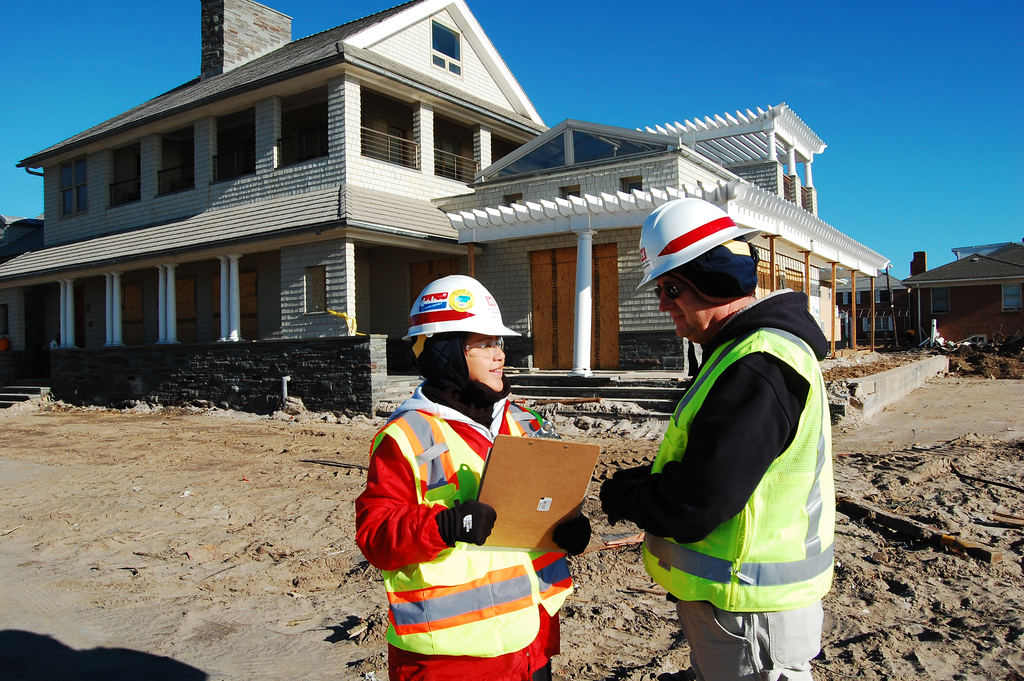Photographer Name: Greg Henshall
On the Ezra Klein Podcast, he recently had a conversation with Hannah Ritchie about the challenges of growing a green industry.
From the podcast:
"for a lot of the history of the environmental movement ... we had to get people to stop doing things or we had to add new technologies to things we were already doing, like the scrubbers for sulfur dioxide.
And now we have this capacity to substitute with solar panels and wind and electric vehicles and heat pumps. And it requires a huge amount of construction, transmission lines. And so you have this movement and this politics that for a lot of its life was about trying to get human beings to do fewer destructive things and now needs them, very rapidly, to do far more constructive things."
For all his insanity, James Lindsay actually made a really salient point on The Joe Rogan Podcast. In one of his rants about critical social justice studies, he talked about how much of postmodernism was about tearing things down, and how it is much easier to tear things down than it is to build them. There is a reason more people work on demolition crews than in architectural firms.
There is a cycle that industries seem to go through. When a new industry arrives, it attracts builders. People are anxious to be the first to arrive to build the new thing. Sure, there is money involved. But the real draw is that builders like to build, and this allows them to do that. Plus, it's something new and there is a lot of room to move fast and break things.
The next stage deals with the fallout of the broken things created by the builders. The industry has stopped attracting builders and is now attracting building inspectors—people who don't actually build anything, they just point out all of the flaws in the buildings.
This stage was ready made for people like Ralph Nader. If the US government was an industry that attracted builders, Nader was the most hard-assed building inspector you could ever imagine. He lead a movement of new liberals who had lost their faith in government through the Vietnam War and Watergate.
From a book review:
"it wasn’t simply a matter of getting the right people into power, as the very act of getting into power would mean they were no longer the right people. The only way to stay pure was to operate outside the system."The only branch of government Nader trusted was the judicial one. He put his faith in the courts. Nader and his followers filed lawsuit after lawsuit until government agencies were blanketed in layers of red tape.
This leads to the next stage in the cycle: The HRification of the new industry. Now the companies that hire the builders have to staff legal teams and HR staff to prevent them from getting sued by Ralph Nader and the other building inspectors of the world. To address the concerns raised by critics and mitigate potential harm, the industry starts attracting experts who specialize in areas like compliance, risk management, and responsible practices. These experts work to ensure that the industry meets regulatory requirements, follows ethical guidelines, and minimizes any negative consequences.
In Nudge, Richard Thaler and Cass Sustein make a suggestion for reducing health care costs: allow patients to waive their right to sue for malpractice. Think about this for a second. One of the largest chunks of your medical bill goes to paying the hospital's legal team and covering the costs of other people's malpractice suits. The cost of building inspectors shows up in nearly every transaction of our lives; so much so that we hardly even notice it.
Before I go too far down the road of libertarianism I feel like I need to say this: the building inspectors aren't bullshitting. They are pointing out legitimate concerns: manufacturing's impact on the environment, the internet's impact on fraud and children seeing explicit content, AI's potential to kill everyone, etc.
I am only here to point out tradeoffs, namely that builders want to build. And when they are prevented from building, everyone is deprived of potential opportunities for prosperity. And when a whole coalition that has dominated most of a society's powerful institutions builds its identity around being a building inspector and purges builders, or at least does a poor job of attracting them, they become incapable of building. And there will come a time when we need to build. And that time is now. And unfortunately, the leftists are unprepared to do it.
But this isn't just a leftist thing. The rise Nader also explains the popularity of Trump and RJK Jr. They are building inspectors from outside the system like Nader, but unlike him, they are trying to get inside it (although Nader did run for president). For all his talk about deal making in the private sector, Trump has no experience building as a politician, which is very different running a business.
My general take is to leaving building to the builders, which is why I like boring politicians like Joe Biden. I also happen to like his industrial policy based on strategically building things the private sector will not provide (like solar panels and micro chips). It just sucks having to watch his efforts get hamstrung by the building inspectors who, I'm afraid to say, hold way too much institutional power.
